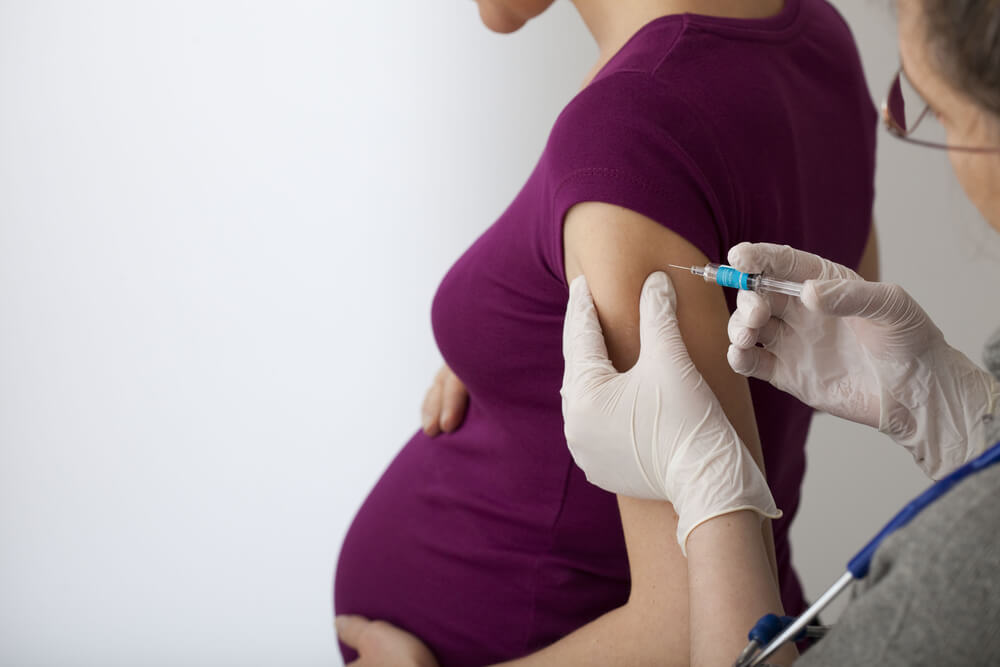
Mumps Measles And Rubella During Pregnancy
1 Jul 2022 | 3 min Read
Tinystep
Author | 2574 Articles
Mumps, measles, and rubella are viral diseases. They are caused by different viruses, but show similar symptoms. These diseases may affect women and their babies who have not been vaccinated before. These also lead to complications in pregnancy. However, these complications can be prevented by the Mumps-Measles-Rubella vaccine (MMR vaccines). Although mumps and measles are not much of a concern for the foetus, rubella can cause congenital rubella syndrome (CRS), which has detrimental effects. Mothers who have received the vaccine are safer than the ones who haven’t been vaccinated.
Mumps
Mumps is a highly infectious and contagious disease. It is a must for people to get vaccinated against mumps. Mumps during pregnancy is not known to be deadly, however, there is an increased risk of miscarriage. The virus is transmitted through airborne droplets released through coughing and sneezing. It mainly affects children who have not been vaccinated. It can be caught at any age. Mumps is normally a mild illness, but can be severe sometimes. The symptoms of mumps are fever, headache, swelling of the lower cheeks, and swollen salivary glands. This usually lasts up to 7 to 10 days. Pregnant women who develop mumps in the first trimester have a slightly higher risk of miscarriage. However, there is not much evidence of mumps leading to defects in the unborn.
Measles
Measles is a highly contagious disease that is caused a virus. It mainly affects children, but adults can also suffer from this. Measles during pregnancy can lead to miscarriage, stillbirth or preterm delivery although these are very rare cases. The virus causing measles can spread very easily. It usually spreads as droplets from coughs and sneezes and through close contact with an infected person. The symptoms that an infected person shows are similar to cold. There is also fever, cough, red eyes and a few tiny spots in the mouth. Eventually, the spots turn reddish and spread all over the body. They can last up to 8 days.
Rubella
Rubella is an infection that is caused by a virus and shows flu-like symptoms and rashes on the skin. It can cause serious complications during pregnancy. It is very harmful to the unborn, so it is important to get vaccinated against it. Women who are vaccinated are on the safer side. The virus usually spreads through airborne droplets, which are released when a person coughs or sneezes. The symptoms are similar to flu-like symptoms. These include fever, headache, red eyes, muscle or joint pain. Rashes can also be seen.
Rubella during pregnancy can cause various complications. It increases the risk of Congenital Rubella Syndrome (CRS), preterm labor, miscarriage, and stillbirth. CRS is a condition that occurs when a mother passes on rubella to her child during pregnancy. This condition can lead to one or more birth defects. However, if the mother has been vaccinated against rubella, the risks of getting rubella and infecting your child also becomes very less. Vaccination can be taken 1 month before pregnancy but is not allowed during pregnancy.
MMR (Mumps-Measles-Rubella) vaccine
The MMR vaccine is a mixture of live, but weakened viruses from measles, mumps, 22and rubella. The vaccine causes a person to develop antibodies to these viruses and gives protection against them in the future. The MMR vaccine provides protection against all the three diseases at the same time. Adults can take the vaccine anytime they want to. If women get vaccinated and want to conceive, there should be at least a month’s gap.
A


Suggestions offered by doctors on BabyChakra are of advisory nature i.e., for educational and informational purposes only. Content posted on, created for, or compiled by BabyChakra is not intended or designed to replace your doctor's independent judgment about any symptom, condition, or the appropriateness or risks of a procedure or treatment for a given person.
